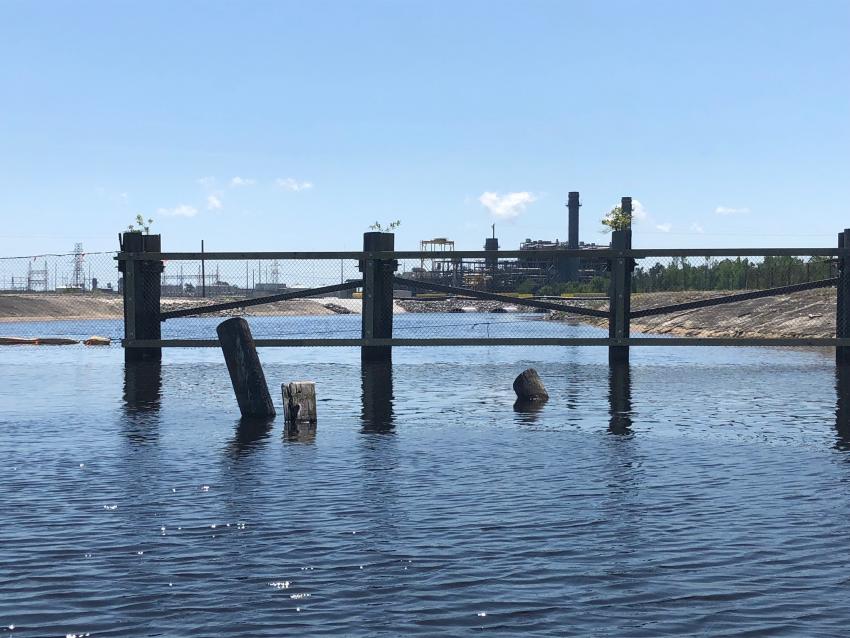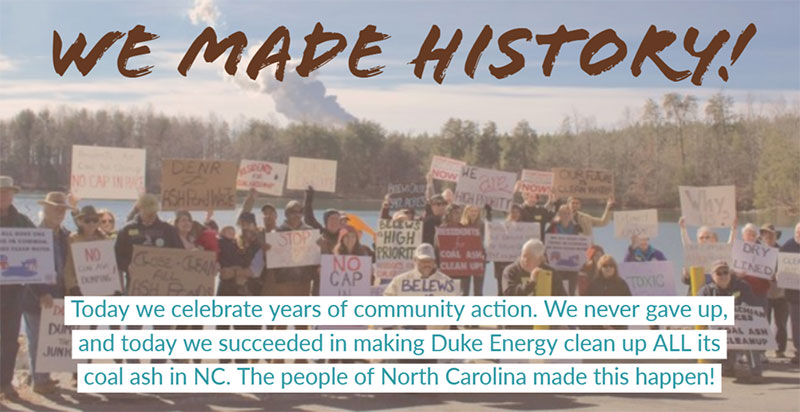Posts Tagged ‘Coal Ash’
EPA Proposes Weakening Rules for Coal Ash and Related Pollutants
The U.S. Environmental Protection Agency plans to roll back pollution limits for coal-fired power plants pending public comment.
Read MoreTrump Administration Rolls Back More Environmental Protections
President Donald Trump’s administration has made numerous cuts to environmental protections including those for methane emissions, protected waters, light bulb standards, and coal ash storage.
Read MoreTVA Refuses to Excavate One Coal Ash Pit, Will Dig Up Another
The Tennessee Valley Authority does not plan to excavate coal ash at their Bull Run Fossil plant in Anderson County, Tenn., unlike the utility’s agreement to fully remove coal ash at the Gallatin Fossil Plant near Nashville, Tenn.
Read MoreEnergy Justice coalition reveals “pay-to-play” ties between Duke Energy, N.C. lawmakers
The Energy Justice North Carolina Coalition released a report today detailing the influence of Duke Energy’s campaign contributions on state legislators’ support for Duke-sponsored bills together with a new, interactive web tool that tracks political contributions from electric monopolies like Duke. Both the report and web tool are based on public data of nearly $1.7…
Read MoreAs Duke Energy contests cleanup, new evidence points to coal ash risks
As Duke Energy appeals the state of North Carolina’s coal ash cleanup order, new information points to the severity of the problem and why coal ash excavation is needed.
Read MoreTVA Faces Criticism Over Coal Ash, Transparency
The Tennessee Valley Authority and its contractor Jacobs Engineering are facing a new lawsuit regarding their cleanup of the 2008 Kingston coal ash spill. Additionally, state and federal lawmakers are backing a U.S. House bill that would require more transparency from the monopoly utility.
Read MoreNorth Carolina Orders Coal Ash Cleanup, Duke Appeals
North Carolina ordered Duke Energy to fully excavate the coal ash at its six remaining coal ash sites across the state, prompting an appeal from the monopoly utility.
Read MoreProgress on Coal Ash in North Carolina
On April 1, we celebrated the welcome news that the N.C. Department of Environmental Quality ordered Duke Energy to excavate the six coal ash sites in the state that did not already have cleanup plans in place.
Read MoreCoal ash cleanup decision a huge victory for North Carolina!
On April 1, North Carolina announced its decision to require Duke Energy to fully excavate the six remaining coal ash sites across the state — a big victory in the year’s long fight against the energy utility’s negligence.
Read MoreNCDEQ orders Duke Energy to fully excavate remaining coal ash sites
Today’s decision by the DEQ requiring Duke Energy to excavate all of its six remaining coal ash sites is a testament to the determination of the people living near these toxic sites who have been calling on the state for strong cleanup measures for years.
Read More






